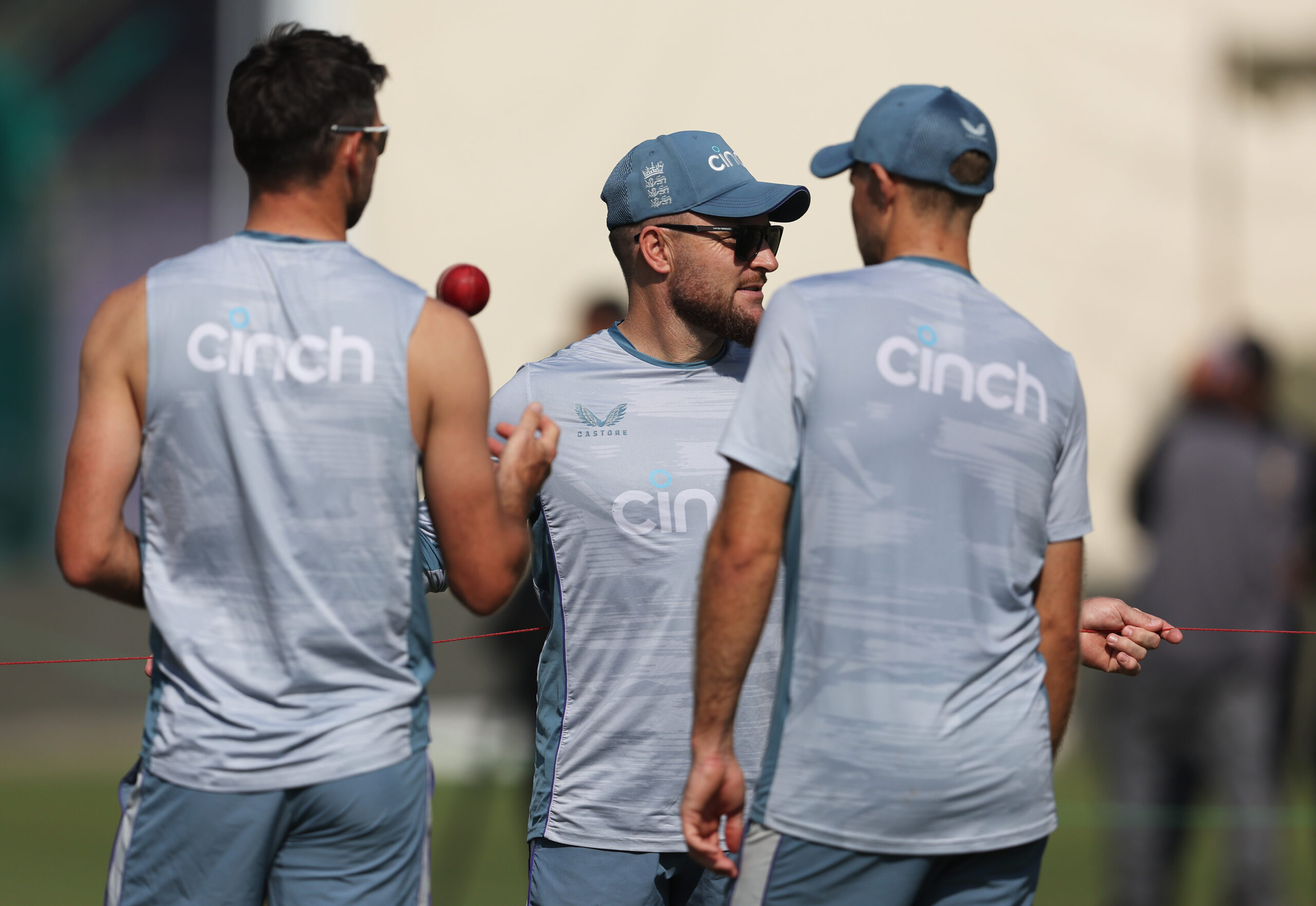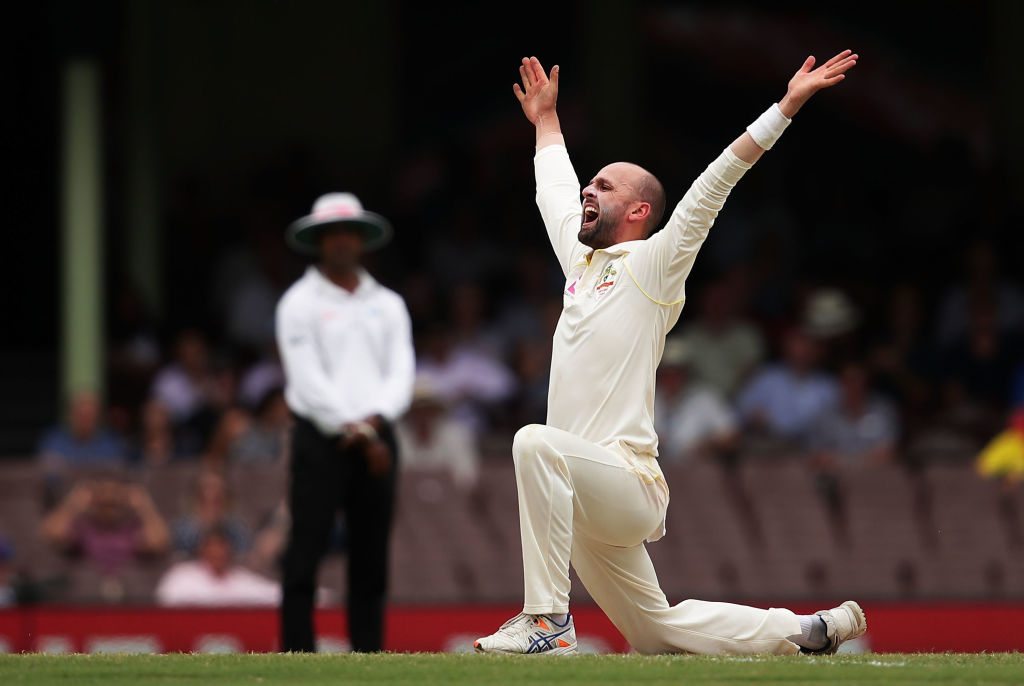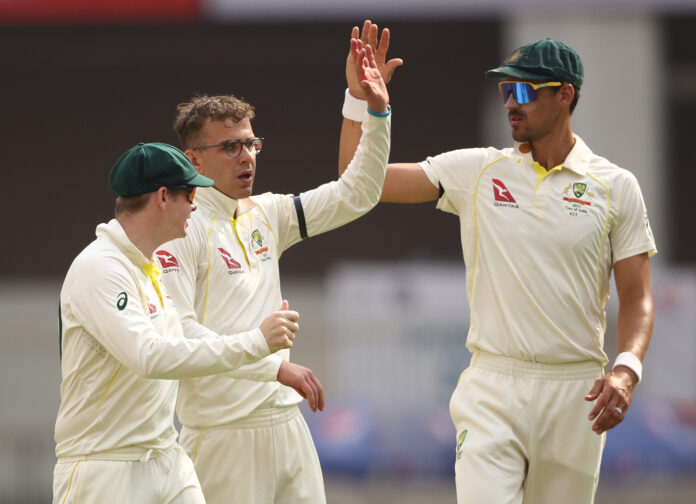
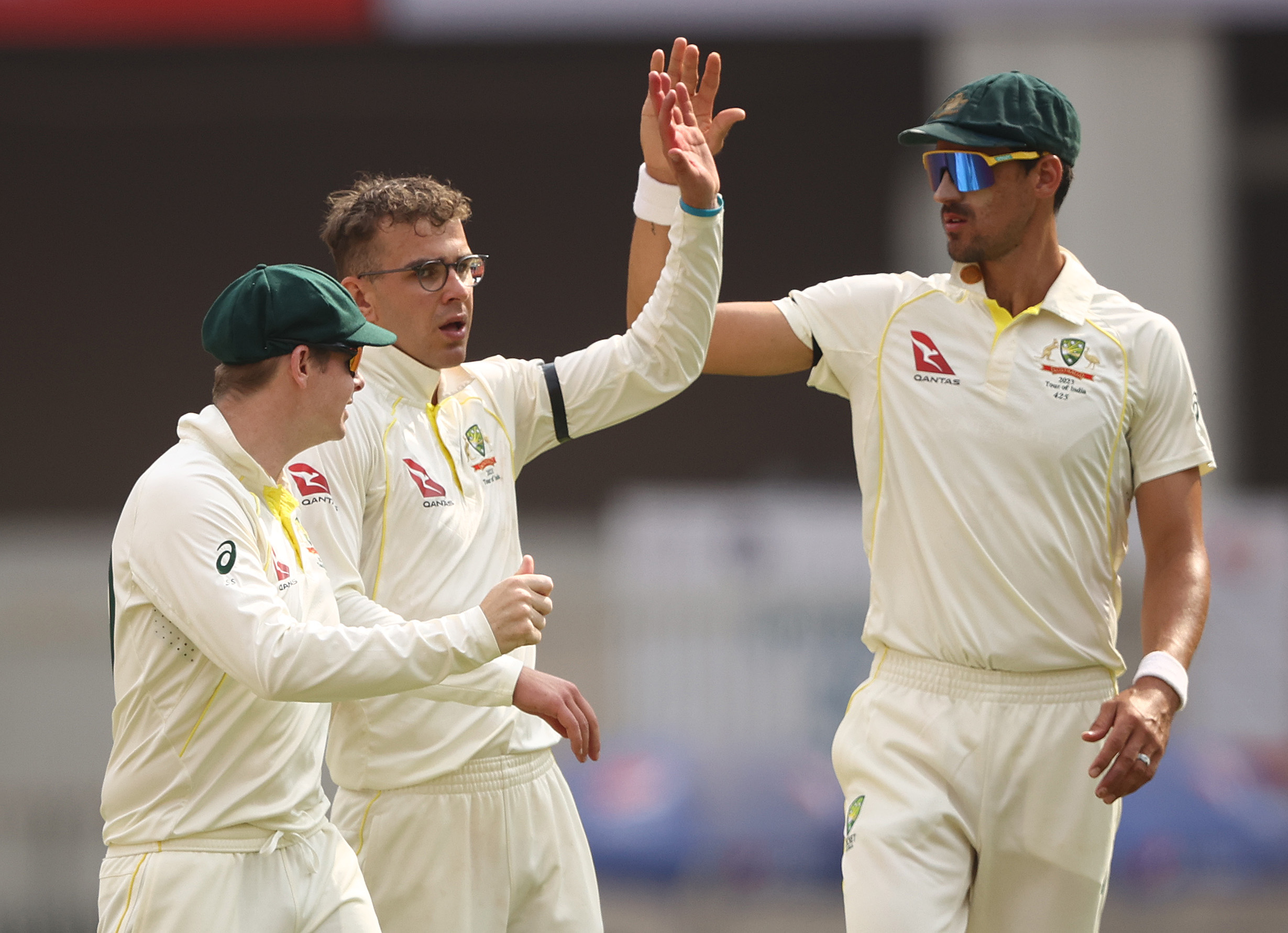
There is a serious case for Australia to not play a frontline spinner at Old Trafford.
A move to bat either Michael Neser or Mitchell Marsh at number eight works on multiple fronts for the Australians, who take a 2-1 lead to Manchester.
If Nathan Lyon was fit, there likely wouldn't be a question, although, even then, there could be - but more on that later.
His replacement Todd Murphy was essentially a wasted selection for the third Test at Headingley. In conditions which weren't overly spin firneldy, he bowled just 7.3 overs in the first innings, and then just two in the second.
Granted, Australia weren't in the field for a long stretch of time, but by the way England play, the chance of ever being in the field for a long length of time is slim.
If Australia had transfered the trust they have in Lyon onto Murphy during the third Test, he would have been into the attack a lot earlier in the fourth innings as the quicks all went for runs trying to prevent England from making a dramatic run chase.
But it's clear that same level of trust doesn't exist, and the Australians can ill-afford to waste another selection heading to another ground that often doesn't break up or take turn.
Old Trafford has been something of a graveyard for most spinners over the last decade when compared directly to pace bowling at the venue.
In the last ten Tests at the famous old ground, pace bowling has taken 238 wickets at 26.42, while spin bowling has taken just 76 wickets at 39.83. That is a big difference, and more so given the closeness of this series, where every run has counted.
On average, spin takes an average of 20 more deliveries to grab a wicket than pace, with a strike rate of over 71 compared to 51 for pace, while, in the era of BazBall where run rates are a real thing, spin has gone at about a third of a run more per over during the last decade.
You could quite reasonably expect to double that against the current English side, who play without a care in the world.
As it stands after three Tests, Australia has combined scores of 58 for 1850, while England sit at 55 for 1809. There is absolutely nothing in it, despite the fact Australia took a 2-0 lead out of the Tests at Edgbaston and Lord's.
Looking back over the last ten Tests at Old Trafford, the only time spin had a better average runs per wicket than pace was in the 2014 edition against India. Most of the time, spin has been a blow away loser, with Tests against sub-continent teams generally speaking the only thing keeping it in check.
Here is a look at each Test over the last ten.
2022 vs South Africa
Spin: 4/204 (80) (average 51, economy 2.55, S/R 120)
Pace: 25/514 (188.2) (average 20.56, economy 2.73, S/R 45.2)
2020 vs Pakistan
Spin: 12/350 (97.3) (average 29.17, economy 3.59, S/R 48.75)
Pace: 24/609 (211.1) (average 25.38, economy 2.88, S/R 52.79)
2020 vs West Indies (3rd Test)
Spin: 3/261 (71) (average 87, economy 3.68, S/R 142)
Pace: 27/625 (200) (average 23.15, economy 3.13, S/R 44.44)
2020 vs West Indies (2nd Test)
Spin: 8/307 (86.2) (average 38.38, economy 3.56, S/R 64.75)
Pace: 23/747 (263.5) (average 32.48, economy 2.83, 68.83)
2019 vs Australia
Spin: 7/307 (114.1) (average 43.86, economy 2.69, S/R 97.86)
Pace: 27/783 (253.1) (average 29, economy 3.09, S/R 56.26)
2017 vs South Africa
Spin: 10/291 (101.3) (average 29.1, economy 2.87, S/R 60.9)
Pace: 30/698 (211.2) (average 23.27, economy 3.30, S/R 42.27)
2016 vs Pakistan
Spin: 7/470 (103.2) (average 67.14, economy 4.55, S/R 88.57)
Pace: 22/705 (213.1) (average 32.05, economy 3.31, S/R 58.14)
2014 vs India
Spin: 5/104 (40.3) (average 20.8, economy 2.57, S/R 48.6)
Pace: 23/546 (167.4) (average 23.74, 3.26, S/R 43.74)
2013 vs Australia
Spin: 7/362 (103) (average 51.71, economy 3.51, S/R 88.29)
Pace: 20/710 (239) (average 35.5, economy 2.97, S/R 71.7)
2010 vs Bangladesh
Spin: 13/371 (108.5) (average 28.54, economy 3.41, S/R 50.23)
Pace: 17/352 (101) (average 20.71, economy 3.49, S/R 35.65)
Total at Manchester over the last 10 Tests (dating back to 2010)
Spin: 76/3027 (906.1) (average 39.83, economy 3.34, S/R 71.54)
Pace: 238/6289 (2048.4) (average 26.42, economy 3.07, S/R 51.65)
Australia, in their two Tests at Old Trafford in 2019 and 2013, has taken a combined 14 wickets at 47.79 bowling spin. Nathan Lyon has the worst average at Manchester of any bowler who has bowled in more than two innings over the last ten Tests, taking 3 wickets at 81. Only Rahkeem Cornwall, Azhar Ali and Ravichandran Ashwin had less success.
Unfortunately for Australia, it's Moeen Ali who has had more success than any other bowler at Manchester over the journey, taking 16 wickets at 18.5 in his five innings.
| Names | Innings | Wickets | Average |
| Marnus Labuschagne | 1 | 1 | 9.00 |
| Moeen Ali | 5 | 16 | 18.50 |
| Shadab Khan | 2 | 2 | 23.50 |
| Shakib Al Hasan | 1 | 5 | 24.20 |
| Graeme Swann | 4 | 12 | 28.58 |
| Roston Chase | 3 | 8 | 33.63 |
| Ravindra Jadeja | 1 | 1 | 36.00 |
| Jack Leach | 4 | 4 | 44.50 |
| Joe Root | 7 | 2 | 45.00 |
| Keshav Maharaj | 3 | 5 | 45.60 |
| Yasir Shah | 4 | 9 | 47.89 |
| Dom Bess | 4 | 5 | 48.00 |
| Abdur Razzak | 1 | 2 | 54.50 |
| Simon Harmer | 1 | 1 | 73.00 |
| Nathan Lyon | 4 | 3 | 81.00 |
| Rahkeem Cornwall | 2 | 0 | N/A |
| Kraigg Brathwaite | 1 | 0 | N/A |
| Joe Denly | 1 | 0 | N/A |
| Travis Head | 1 | 0 | N/A |
| Dawid Malan | 1 | 0 | N/A |
| Azhar Ali | 2 | 0 | N/A |
| Ravichandran Ashwin | 1 | 0 | N/A |
| Steve Smith | 1 | 0 | N/A |
| Michael Clarke | 1 | 0 | N/A |
That said, just because something works for an opponent, it doesn't mean there is an outright need to copy tactics, and Australia must stick to its strengths.
It became evident during the third Test that the strength isn't handing overs to the back-up spinner, and so they must carefully consider all 11 selections.
As mentioned, runs are going to be important. Old Trafford has had a way of dishing up some big scores - Australia themselves have scored 497 and 527 in their two Tests at the venue in the last ten years, with Steve Smith making 211 in 2019, and Michael Clarke scoring 187 in 2013.
But the current batting line-up isn't what the line-up of those 2013 or 2019 series was, and up against a refreshed James Anderson who will be hooping it around corners on the traditionally green Old Trafford deck, the challenge isn't about to get any easier.
David Warner getting out to Stuart Broad is seemingly a mere formality, Steve Smith and Marnus Labuschagne haven't found their groove yet, and there are question marks over others.
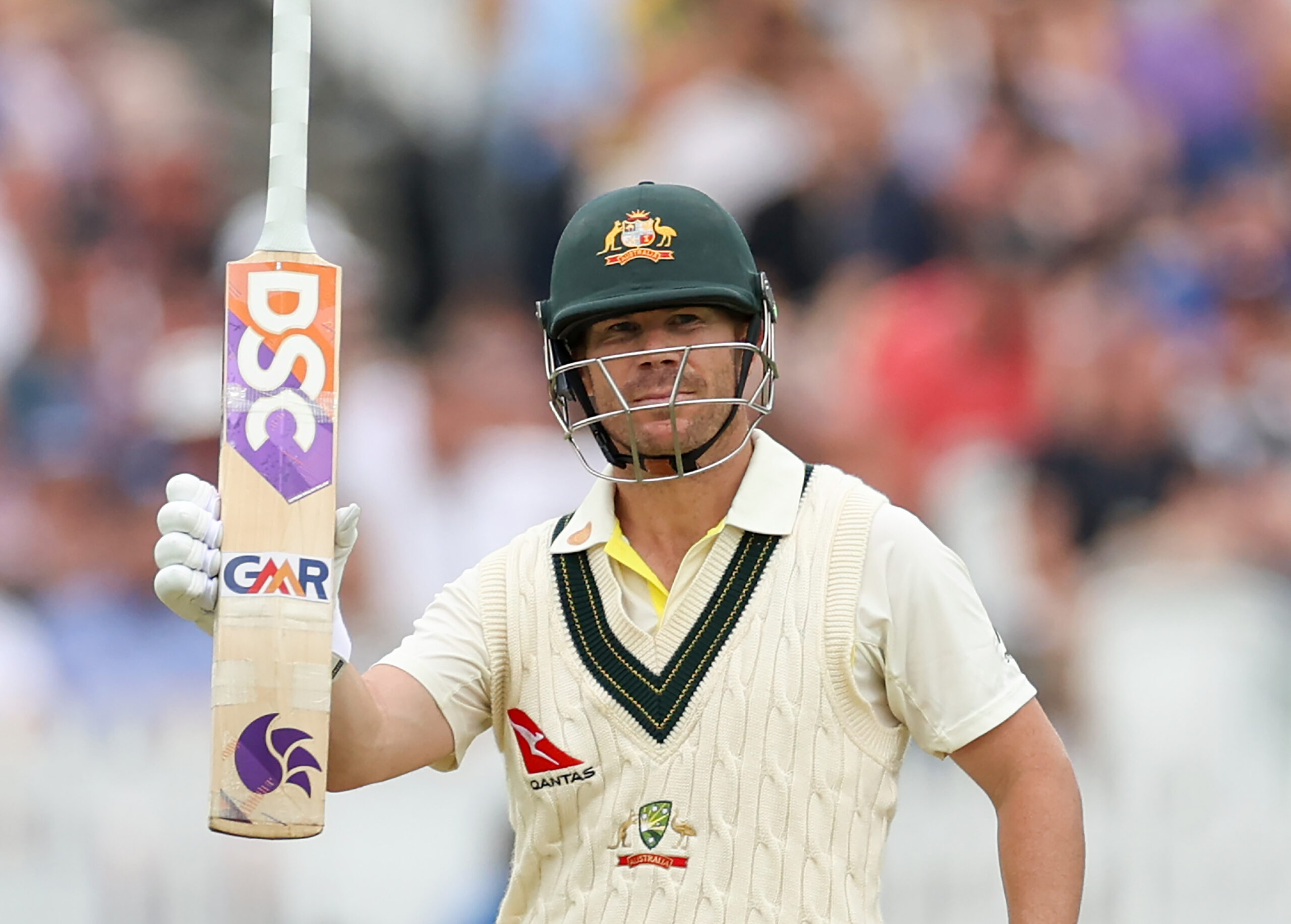
That said, Cameron Green being fit again creates an intriguing headache for the tourists.
There have been some suggestions that David Warner could be dropped to accommodate both all-rounders, with either Green or Marsh opening. Travis Head is another name that has been floated as a possibility at the top of the order.
But against a swinging ball on a green top, that just won't work. Warner has made a couple of scores this series and he and Usman Khawaja have combined for a stand greater than 50 in three of the six innings, so talk of his axing probably needs to be stopped.
That leaves Green and Marsh seemingly fighting over a single spot.
Green's form in the first two Tests was poor, to say the least, but he plays an important role in the Australian side, and his height and pace add plenty with the ball.
Marsh is almost undroppable after being Australia's best with a century in the third Test at Headingley, but for mine, he is in a two-way fight with Michael Neser for the spot previously occupied by Todd Murphy.
There is simply no room for a spinner who isn't being used in this side, particularly when Australia has three suitable part-time options in Steve Smith, Marnus Labuschagne and Travis Head.
In a game where spin will likely be seldom used, Australia is far better off playing Marsh or Michael Neser at number eight and strengthening both their batting and bowling at the same time.
Marsh, as undroppable as he might be, doesn't bring the same levels with the ball as Neser, who is also in outrageous form with the bat.
Neser matches the English quicks and would be a perfect addition against the Baz Ball style - not as quick as his teammates, but with the ability to move the ball both ways and cut away off the surface if any assistance is provided.
It also means Australia has an extra quick who will be happy to toil away, leaving Pat Cummins and Mitchell Starc available to rip in for short spells.

With Neser making a big century in county cricket overnight to go with one earlier this summer and another pair of scores reading 86 and 90, he would quickly become the best number eight in world cricket.
If you're looking for runs, then a tail that reads Neser, Cummins, Starc and Hazlewood is outrageous. Both Cummins and Starc are number eights in just about any other nation around the world.
It's tough to say no to Marsh after his century, but Neser deserves his chance with both bat and ball, and with Australia having options with the ball, this should be the way forward at a ground that simply doesn't turn for opposition spinners.
Whether Ali can keep his run of success going there is anyone's guess - his form hasn't been great during the Ashes, albeit understandable given his time away from red ball cricket prior to his Test recall, but it shouldn't matter.
Australia must do what suits them, and this is what suits them.

